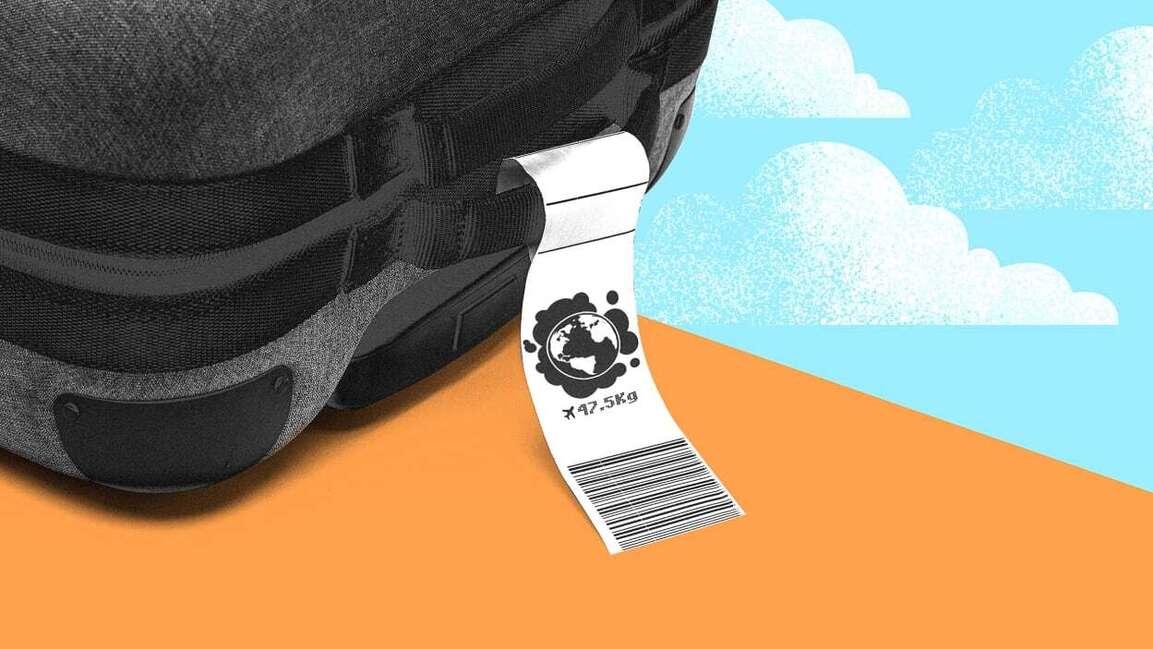- | 2:14 pm
This travel company’s new carbon labeling program will give you the toll of your jet-setting ways
Tour operator Intrepid Travel has calculated the emissions for 500 of its most popular trips–and is putting the info front and center.

What if you could understand your travel’s environmental impact by glancing at a simple set of numbers, much like viewing nutritional facts on the back of a food label? This is the goal of Australia-based tour operator Intrepid Travel with its new carbon labeling initiative. In an industry first, Intrepid is comprehensively highlighting the total carbon emissions produced by each trip on 500 of its top itineraries. The number =—representing the amount of CO2-e (carbon dioxide equivalent) emitted per person per day—will be front and center on each trip itinerary, empowering travelers to make environmentally informed decisions about their vacations.
Working with Ndevr Environmental, an Australia-based advisory firm which helps companies such as Lexus, Quatas, and Chobani develop sustainable business practices and reduce their carbon footprint, Intrepid broke down its trips into six emitter categories: accommodations, transport, activities, dining, waste, and its own office operations. From there, Ndevr provided CO2-e emission estimates on a country level based on factors such as miles traveled or a hotel’s star rating. Intrepid then used these results to calculate the average carbon footprint per passenger per day. (Intrepid has yet to include airline emissions in its overall calculations—travelers book their own pre- and post-trip flights—but it’s working to do so, as more than 40% of a trip’s emissions typically come from transportation.)
“It’s a guide rather than an exact science,” says Intrepid’s CEO James Thornton. “But carbon calculations are increasingly more accurate, and we plan to update these numbers as technology advances.” (Intrepid also adds a 15% contingency to each trip’s carbon total to adjust for any neglected emissions.) Intrepid plans to pair CO2 numbers with information on how it offsets these emissions, through renewable energy programs like Tasman Environmental Market, which supports wind farms in Tamil Nadu, India. (Intrepid is in the process of diversifying its carbon offset portfolio to include more sequestration and nature-based solutions). It will also demystify the numbers by making simple comparisons between the carbon generated by travel activities and equivalent everyday actions like driving or charging a cell phone.
Take, for example, Intrepid’s popular Vietnam Express Southbound trip. It includes various transports (an overnight boat trip, a sleeper-car train ride, a flight from Hoi An to Ho Chi Min City) as well as a motorbike tour of central city Hue. The 10-day adventure emits 73.59 CO2-e per traveler per day. In contrast, the eight-day Egypt Adventure, which covers three destinations by train and boat, as well as tours of the Great Pyramids in Cairo and a visit to a Nubian village, costs you 45.90 CO2-e per traveler per day. Emitting 100 CO2-e per day, Intrepid explains, is the equivalent of driving 248 miles in a gas-powered car. Of course, if you flew from New York, you’d also emit the equivalent of 2,248 CO2-e to Hoi An and 1,329 CO2-e to Cairo, round trip.
According to a recent survey that Intrepid conducted in partnership with the Harris Poll, 60% of travelers are more likely to book trips from companies or brands that are transparent about sustainability and carbon reduction efforts. Furthermore, 50% of respondents noted they’d be willing to change travel plans to reduce their carbon footprint even if it’s more expensive or less convenient. More than half (58%) said they’d alter their plans to reduce their carbon footprint if they could easily see and understand their personal environmental impact.
Carbon labeling is Intrepid’s latest push to make its operations more sustainable. The world’s largest travel-industry B Corp, Intrepid was carbon neutral by 2010. Two years ago, it also committed to setting emission reduction goals via the Science Based Targets initiative by 2025. And in an effort to bring more minority access and leadership to the travel space, it created a set of actionable ethical marketing guidelines to help diversify its trips, staff, and partners. To bring down air travel emissions, Intrepid is also working to eliminate, in 2024, more than 4,000 short-haul flights from its itineraries—from Siem Reap to Phnom Penh on its Cambodia trips, for example—as well as all scenic flights.

[Image: Intrepid Travel]







































